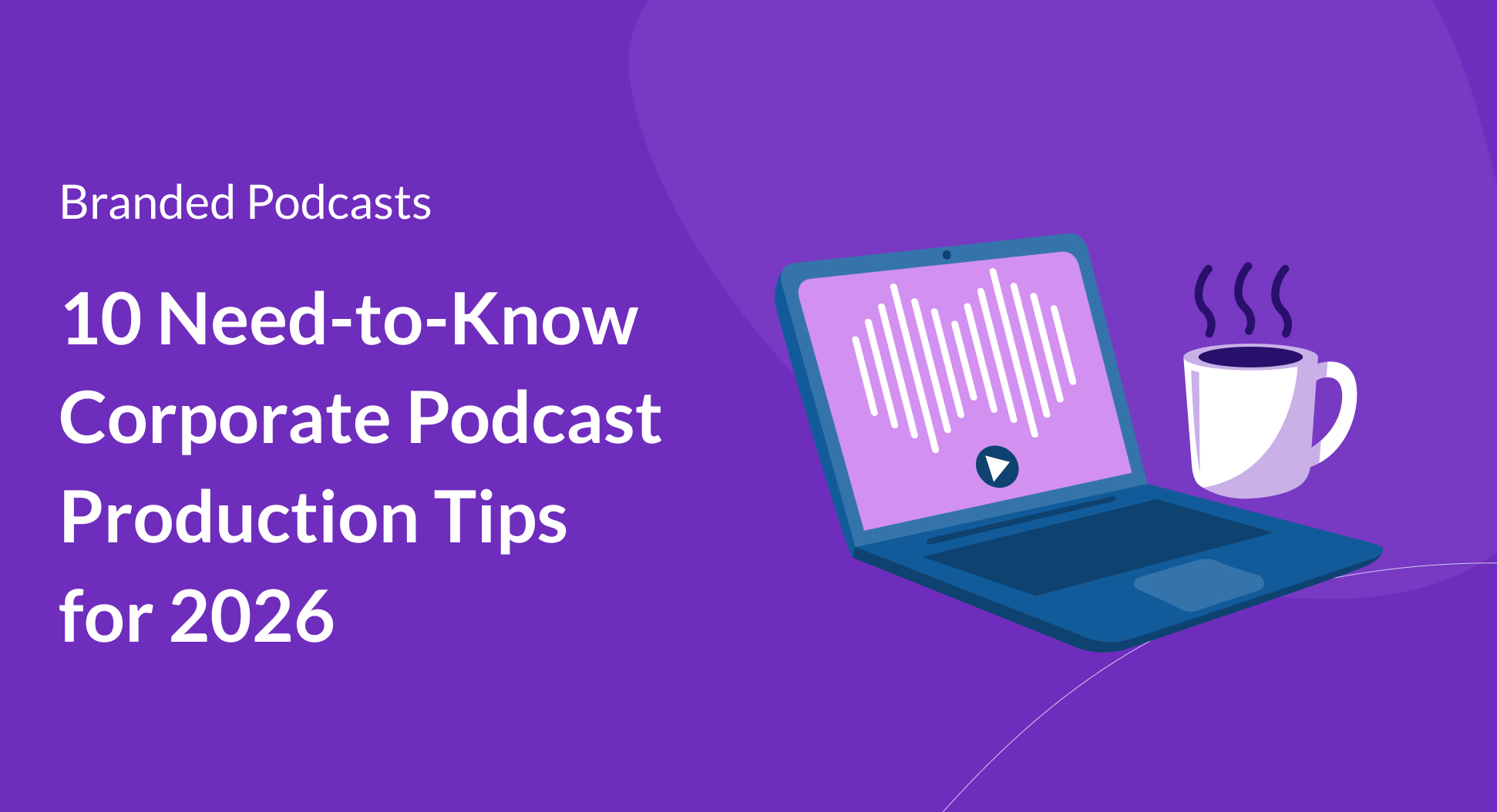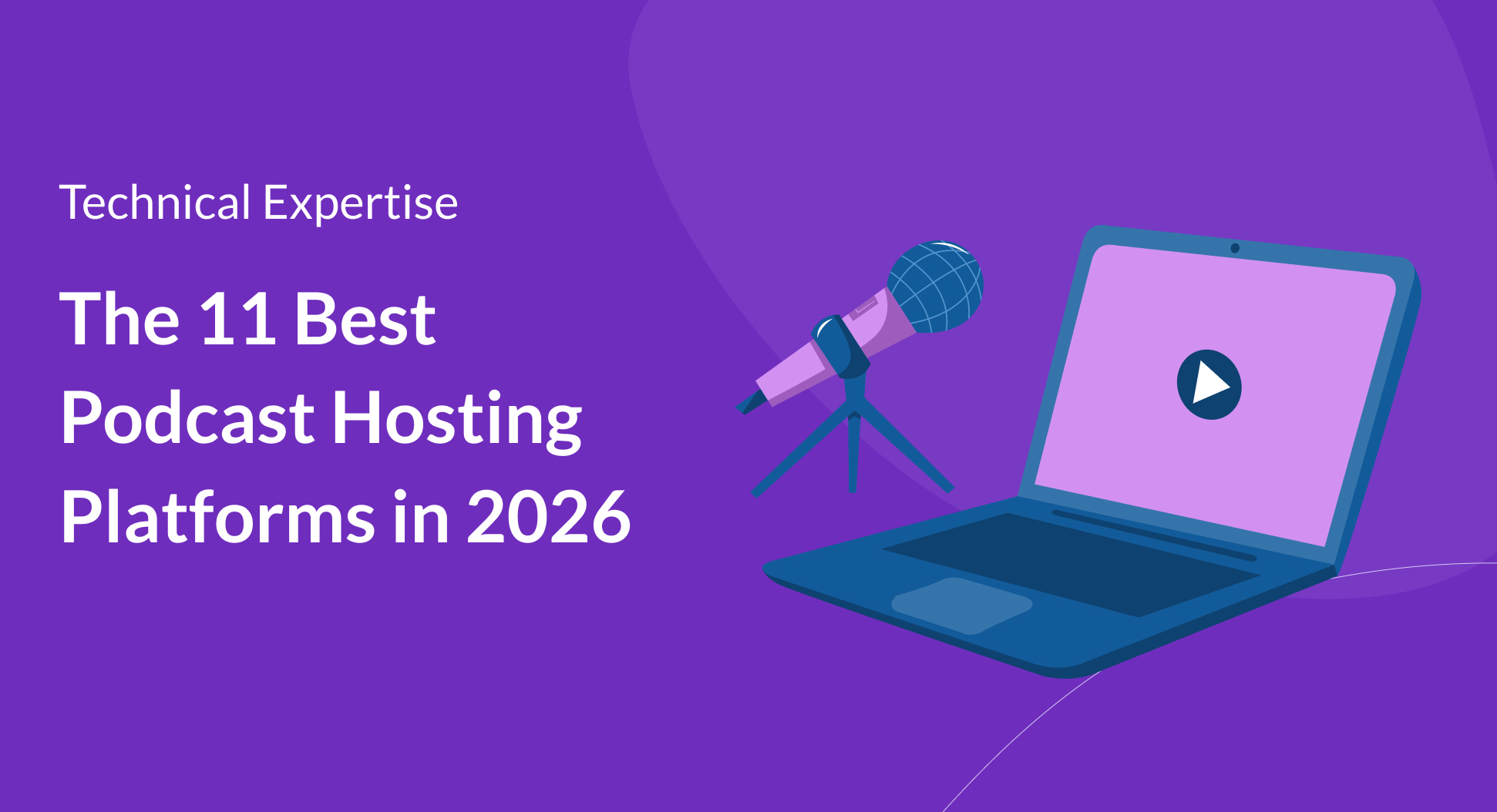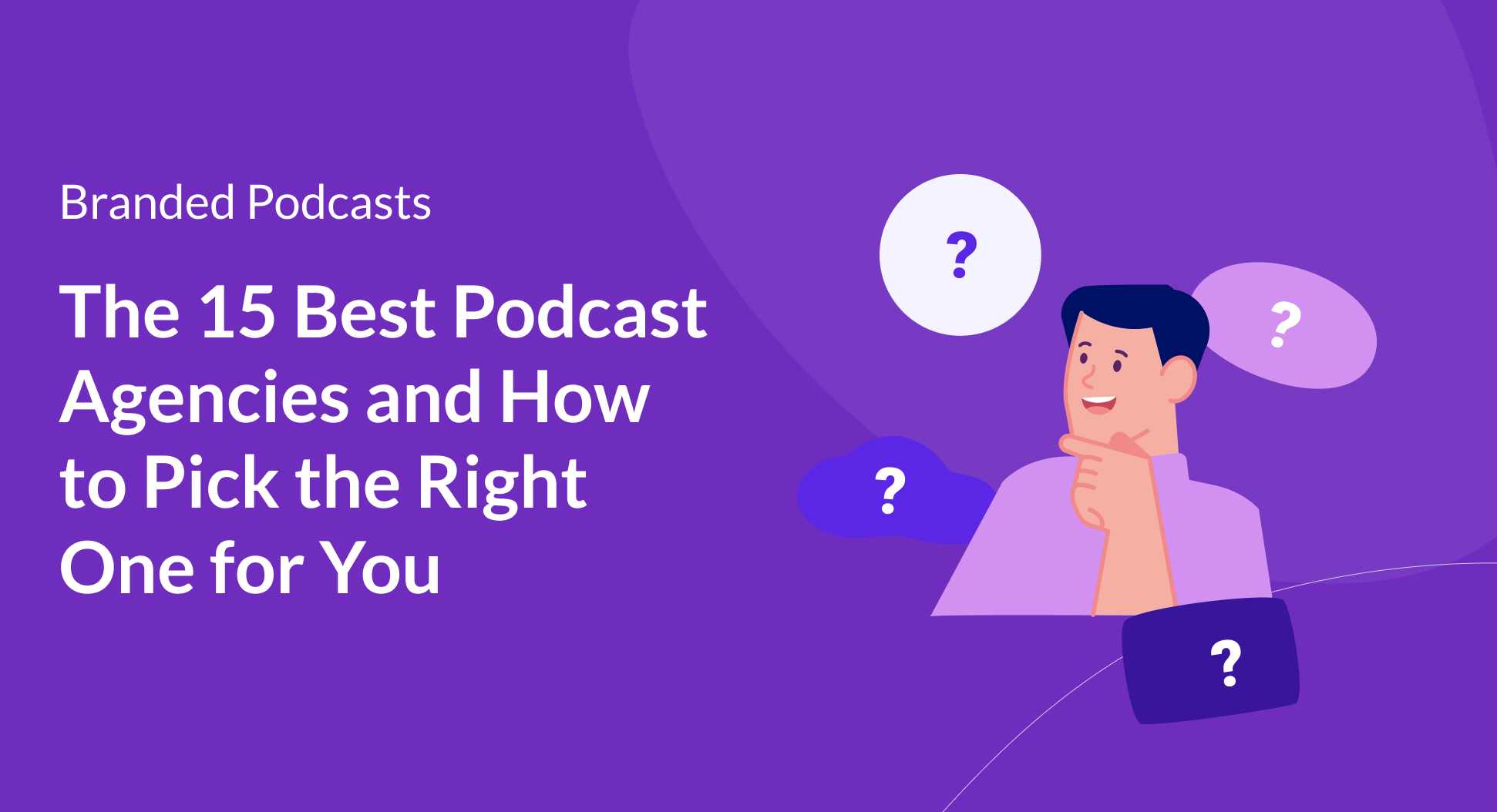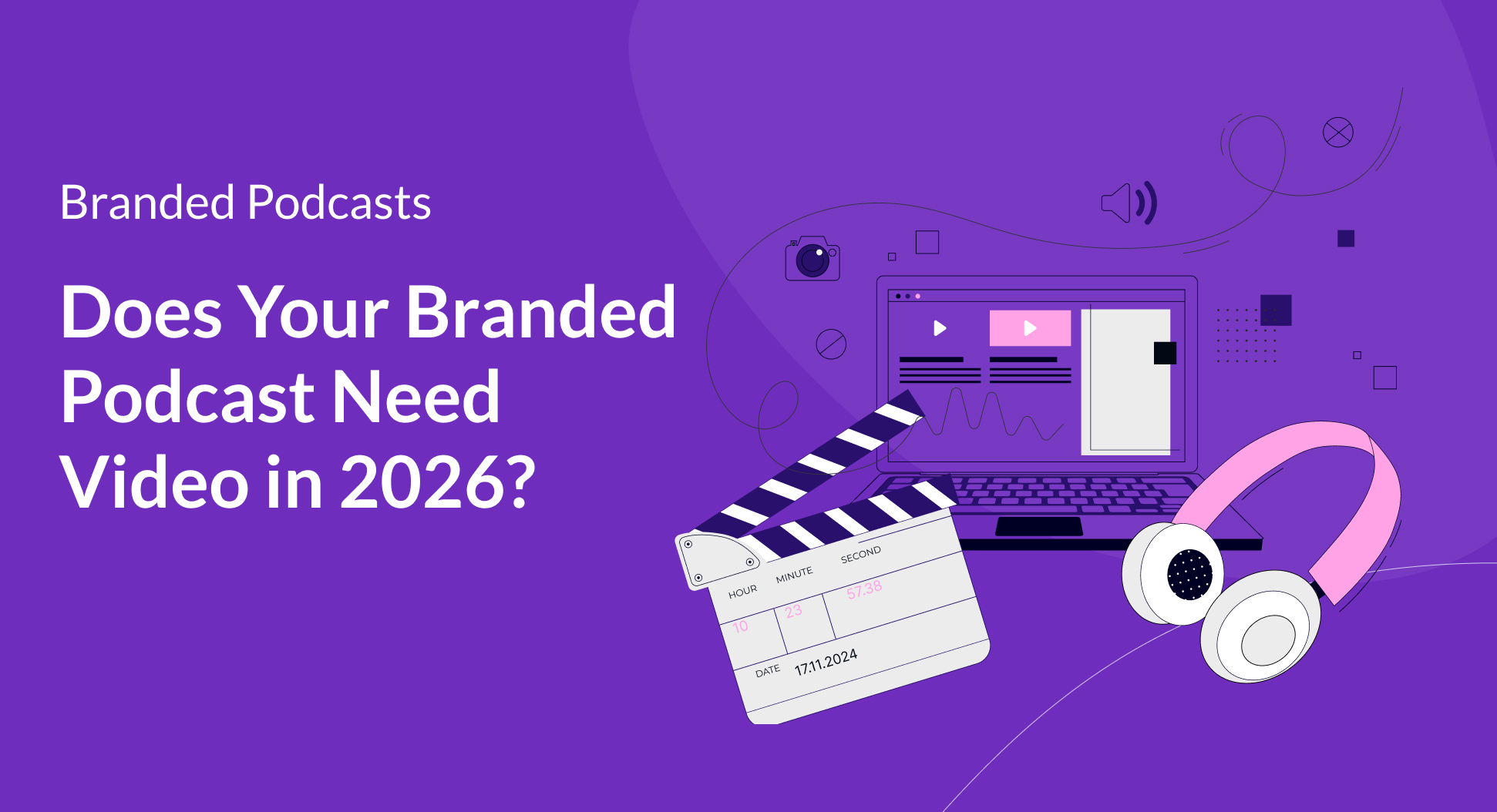Contents
Audio engineering is an essential but often overlooked aspect of creating high-quality audio content.
Audio engineers don’t just remove the “um’s” and “likes” – they play a crucial role in ensuring that your branded podcast sounds professional and engaging (and is something that your target audience will actually want to listen to).
In this blog, we uncover what audio engineers do and how their additions can set your show apart from the masses. Let’s get into it.
What is an audio engineer?
First things first - what is an audio engineer anyway?
An audio engineer is responsible for recording, editing, mixing, and mastering audio content. They play a critical role in ensuring that audio recordings sound polished, professional, and meet the desired quality standards.
This is not to be confused with audio editing, which can be an individual who edits the actual content in the podcast, not the sound.
Conversely, the role of audio engineering is to capture audio and then reproduce it with edits. In this article, we will focus on the three main areas audio engineers focus on:
1. Recording Audio
When an audio engineer helps with recording a podcast episode they are responsible for connecting all of the devices, setting up equipment, and testing all sound recording devices such as microphones and mixing devices
Here are three things anyone interested in audio engineering should consider for optimizing microphone audio during the podcast recording:
- Finding the optimal distance for speakers to be from the microphone for best voice quality;
- If a podcast has multiple microphones being used for hosts and guests, they will ensure that they are oriented in a way where one microphone doesn’t pick up any sound from another;
- While microphone volume is how loud the output of the sound is, microphone gain is the input sound to the microphone. An audio engineer will set the microphone gain during the recording.
Once all devices are set up and tested by the audio engineer then the show can be recorded. The best way to decrease the chance of audio problems is to prevent them from happening in the first place by getting clear recordings.
2. Mixing Audio
The next step that an audio engineer can assist with is mixing the audio. Mixing is the process of adjusting and combining individual audio tracks into one show.
For instance, if each of your podcast hosts recorded their audio individually, then you may need to mix the tracks. Since sound has as much character as any voice, sound engineers are responsible for creating dynamic soundscapes.
Mixing can also involve checking the sound levels of all audio tracks, adding a theme song, and including advertisements within the podcast episode.
3. Mastering Audio
Mastering the audio is the final step to transforming your audio recording into a polished episode. This can be one of the more challenging steps since it requires technical expertise.
Audio engineering requires you to do a few things to master podcast audio:
- Equalizer (EQ): Gives you the ability to boost or cut frequencies, compensating for excessive volume in particular ranges. This can improve your audio, by fixing harsh tones such as “boomy” and “shrill” sound inconsistencies
- Compression: Helps you tame the highs and lows of the audio. It helps to smooth it out and narrows the range between the loudest and softest parts of the audio.
- Limiting: Closely related to compression is limiting. This sets a ceiling for the overall audio track volume. Running the audio through a limiter will lift the volume of each episode without distorting it.
Should you hire an audio engineer for your branded podcast?
There are a lot of podcasts that exist -- over 5 million with 70 million episodes between them. This means that there is a large variety of options for listeners when it comes to choosing a series. Audio engineers are one way to make your series a go-to.
If you’re serious about creating a branded podcast that makes an impact, here are some of the top reasons we suggest hiring an audio engineer:
Sound Quality:
One of the most compelling reasons to hire an audio engineer for your branded podcast is to ensure top-notch sound quality. Audio engineers are trained to work with various audio elements, from voice recordings to background music and sound effects. They can use their expertise to eliminate unwanted noise, echoes, and inconsistencies, resulting in a podcast that sounds professional and engaging to your audience. A podcast with superior sound quality is more likely to attract and retain listeners.
Technical Expertise:
Podcasting involves a range of technical components, from selecting the right microphones and recording equipment to using audio editing software effectively. Audio engineers are well-versed in the technical aspects of audio production. They can recommend the best equipment within your budget, set up recording environments for optimal sound, and utilize advanced editing techniques to enhance the final product.
Time and Efficiency:
Podcast production can be time-consuming, especially if you're new to the process. Hiring an audio engineer can save you valuable time and streamline the production workflow. They can efficiently handle tasks like audio editing, mixing, and mastering, allowing you to focus on creating content and growing your podcast's audience. This division of labor leads to a more efficient and productive podcasting experience.
Consistency:
Consistency is key to building a loyal listener base for your branded podcast. Audio engineers can help maintain a consistent audio quality throughout all episodes. They ensure that the audio levels, tone, and overall sound signature of your podcast remain uniform, enhancing the listener's experience. Consistency in audio quality fosters trust and reliability among your audience, making them more likely to return for future episodes.
Creative Input:
Audio engineers are not just technical experts; they can also contribute creatively to your podcast. They have a deep understanding of audio aesthetics and can provide valuable input on music selection, sound effects, and creative audio enhancements that align with your brand's message and theme. This collaborative approach can elevate the storytelling and entertainment value of your podcast.
Professionalism:
A well-produced podcast reflects positively on your brand and reputation. It communicates a commitment to quality and professionalism. By investing in an audio engineer, you signal to your audience that you take your podcast seriously and are dedicated to delivering a polished and enjoyable listening experience. This professionalism can enhance your brand's image and credibility in the eyes of your audience.
With all of that said, if an audio engineer isn’t in the budget for you right now, we highly suggest hiring a freelancer or even shadowing them once. That way you can learn as much as possible to incorporate what they do into your future shows.
The sound of success
Audio engineering is the backbone of any successful podcast, and understanding its importance can make or break the quality and impact of your branded podcast. As we've explored in this blog, audio engineers are the unsung heroes behind the scenes, tirelessly working to ensure a captivating listening experience for your audience.
From their technical expertise and industry-standard equipment to their ability to troubleshoot and optimize audio quality, audio engineers elevate your content to a professional level. They save you time and stress by handling the intricate details, allowing you to focus on creating compelling and engaging content.
If you want to learn more about leveling up your branded podcast, reach out to the Quill team.


.avif)





.png)

.png)




.png)
.png)
.png)
.png)